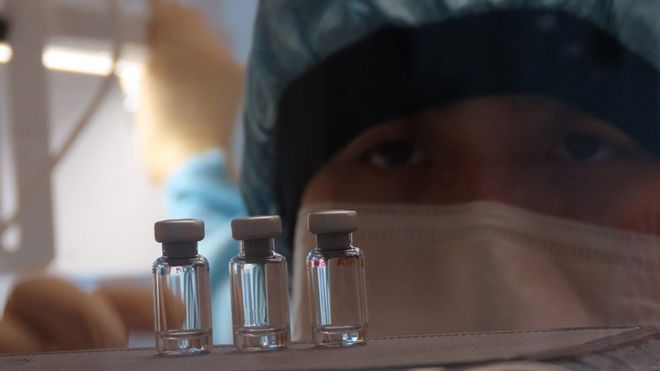Coronavirus vaccine: When will we have one?| BIOCONCERN
Coronavirus vaccine: When will we have one?

Why is a coronavirus vaccine important?
The virus spreads easily and the majority of the world's population is still vulnerable to it. A vaccine would provide some protection by training people's immune systems to fight the virus so they should not become sick.
This would allow lockdowns to be lifted more safely, and social distancing to be relaxed.
What sort of progress is being made?
Research is happening at breakneck speed. About 80 groups around the world are researching vaccines and some are now entering clinical trials.
- The first human trial for a vaccine was announced last month by scientists in Seattle. Unusually, they are skipping any animal research to test its safety or effectiveness
- Pharmaceutical giants Sanofi and GSK have teamed up to develop a vaccine
- Australian scientists have begun injecting ferrets with two potential vaccines. It is the first comprehensive pre-clinical trial involving animals, and the researchers hope to test humans by the end of April
- University of Oxford researchers are aiming to have a million doses of a vaccine by September, and are starting human trials
However, no-one know how effective any of these vaccines will be.
When will we have a coronavirus vaccine?
A vaccine would normally take years, if not decades, to develop. Researchers hope to achieve the same amount of work in only a few months.
Most experts think a vaccine is likely to become available by mid-2021, about 12-18 months after the new virus, known officially as Sars-CoV-2, first emerged.
That would be a huge scientific feat and there are no guarantees it will work.
Four coronaviruses already circulate in human beings. They cause common cold symptoms and we don't have vaccines for any of them.

No comments